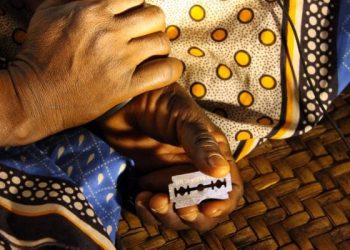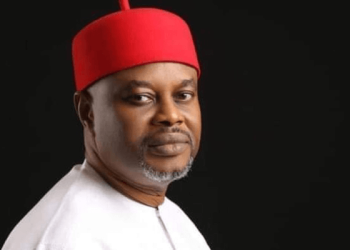Waiting is the word as President Muhammadu Buhari continues to do a final check on those who will make up his cabinet. The President has repeadly stated that his vision is to bring in the best our country could offer. This vision should transcend national borders with local and international influence. There is the urgent need to build a new society driven by a purposeful and visionary leadership. The country also requires persons who can be trusted to manage the destiny of the country and its vast resources.
Persons who though may be talented but are unreliable and untrustworthy are not required in the service of our country at this period and may not be required for a long time to come rather we need persons who place emphasis on values and motivation. Depending on the circumstances and given the atmosphere of relative insecurity under which we found ourselves presently, we also require persons who have strong political skills to cope with conflicting requirements of multiple constituents.
We need to realize that Nigeria is highly diversified with several tendencies, beliefs and consciousness. Only persons who by their actions and pronouncements are capable of taking advantage of these tendencies in building a cohesive and unified country are required at this critical point in time. We do not need people who are parochial, narrow minded, divisive and shortsighted at the helm of affairs. We need leaders who are statesmen and who are able to rise above primordial sentiments in building a great and prosperous country.
We need persons of great influence and with capacity to prioritize responsibilities based on self-discipline as ministers. We can also not underestimate the need to enlist the services of persons imbued with problem solving skills. There is the urgent need to fix the economy, fix infrastructure, fix insecurity, fix corruption and raise living standards. Only those with problem solving skills and can think outside the box need come on board to address these challenges.
We also need men and women of deep compassion who understand the human element, understand that the most appreciable asset is people and know how to develop them, including persons who have value for people, commitment to people, integrity with people, standard for people and influence over people. We do not need people who do not value human lives and give a damn about basic human needs as ministers.
We need persons that will position the government to deliver quality governance in aid of development and reforms aimed at improving conditions of living in Nigeria. Persons who will tackle poverty, unemployment, confront the scourge of corruption, terrorism and security challenges in the country. We need persons who are decent, patriotic and hardworking as ministers. It is important that such ministers are assigned portfolios relevant to their knowledge, expertise and exposure.
We need persons who understand the workings of democracy and are willing to abide by the fundamentals of the democratic tradition. Persons who are democrats are required since they will operate in a democratic setting.
Consequently, we need persons who are schooled on the theory of constitutionalism, rule of law, due process, transparency and accountability, rights and freedom of others, separation of powers and good governance. How do we guarantee these credentials for our ministers? Understandably, the government is planning to put in place a new code of governance for the administration. This underscores the need to evolve a code of ethical and political conduct to guide the actions and activities of public office holders to enable us hold them accountable in office. Since the administration has professed zero tolerance for corruption, it should invest in personal integrity of the ministers.
It is the only currency that has value in the battle against corruption. You cannot have credibility without integrity; you cannot have credibility without accountability; you cannot have democracy without accountability. Also, the administration must insist on public declaration of assets of the ministers in order to throw away speculation and demonstrate that there is a difference between rhetoric and action.
The administration must also show that there is distinction between propaganda and progress. Refusal to declare assets and to require top servants of the administration to demonstrate the same commitment will confirm inability to fight corruption and the fear of the implications.
Corruption is the monster that we need to confront and defeat and all hands must be on deck. We should take the issue of corruption and transparency very seriously. The expectation is that if we present good candidates as ministers, there is a chance that we could change Nigeria for the better. Finally, we need persons who have a sense of duty and are ready to make sacrifices even at the expense of their personal comfort in keeping the country great and prosperous.
Mutiny and the armed forces – Thisday
Alex Badeh’s confession simply confirms that some of the officers and men on trial are not timid
The Nigerian Army last week said it would review some of the disciplinary and court-martial cases, especially those handled under the former Chief of Army Staff, Lt. General Kenneth Minimah (rtd). “For the avoidance of doubt it should be noted that the Nigerian Army is reviewing all recent disciplinary cases due to the wave of litigations and petitions by some aggrieved personnel”, said army spokesman, Col. Sani Usman.
The timing couldn’t have been better. The former Chief of Defence Staff, Alex Badeh last week, while delivering his valedictory speech at a pulling out parade in Abuja, made troubling revelations about the state of the armed forces and military preparedness in the face of the Boko Haram brutal insurgency.
“Over the years,” said Badeh, an air chief marshal, “the military was neglected and under-equipped to ensure the survival of certain regimes, while other regimes, based on advice from some foreign nations, deliberately reduced the size of the military and underfunded it. We do not have the technological advantage that could compensate for reduced strength.” Thus, in the advent of the Boko Haram insurgency, “the military was overstretched and had to embark on emergency recruitments and trainings which were not adequate to prepare troops for the kind of situation we found ourselves.”
Even if late in coming, Badeh’s confession has put in perspective why some officers and men at different times deliberately disobeyed superior orders to go out and fight the insurgents. In the past one year, no fewer than 70 soldiers had been sentenced to death for “mutiny, negligence and cowardice” as well as for protesting alleged non-payment of salaries and allowances. Sometime last year, some 54 soldiers from the 111 Special Forces battalion attached to the 7 division of the army in Maiduguri were sentenced to death.
The soldiers were accused of disobeying the order from superior officers to take part in an operation aimed at dislodging the Boko Haram insurgents. Some 12 soldiers were also sentenced to death by firing squad for shooting at a car conveying their commanding officer, Ahmed Mohammed, a Major General who has been compulsorily retired from the military. Even now, hundreds of soldiers are currently standing trial in Abuja, Jos and Lagos for offences that mainly had to do with inadequate arms and welfare. Indeed in their defence, the soldiers said they mutinied because the authorities did not provide them with the required combat and support equipment needed for such operations.
Until early this year, the insurgents were carrying out their grisly atrocities particularly in the Northeast, at will. And the feeling out there was that our armed forces were not doing well enough. This was accentuated by reports of shortage of vital supplies in the frontlines – from ammunition to food, complaints that can do a lot of damage to anyone’s morale. But when Borno State Governor Shettima said after a meeting in Aso Rock that the insurgents were better equipped and more motivated than our soldiers, he was practically declared an enemy by former President Goodluck Jonathan and the military authorities at the time. Now Nigerians know better.
We had earlier expressed worries in the course of the ongoing counter-insurgency campaigns that the frequency of mutiny cases points to a systemic problem within the Nigerian armed forces. Badeh’s revelations are enough justification that the officers and men were not unnecessarily alarmist and rude. They were deliberately being sent to the battle field to die. Any reasonable man would flee such dangerous assignment. Therefore, such officers and men need equipment and retraining, not court martial.
However, Badeh’s revelations also raise a big question on transparency and accountability within the armed forces. What happened to the billions of naira annually budgeted for defence in the last couple of years?














































